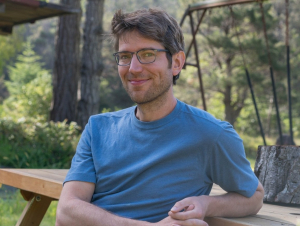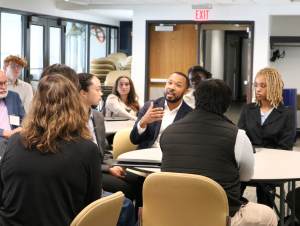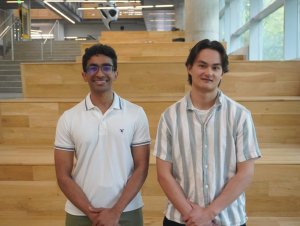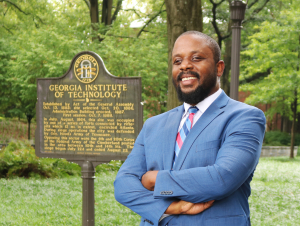To request a media interview, please reach out to experts using the faculty directories for each of our six schools, or contact Jess Hunt-Ralston, College of Sciences communications director. A list of faculty experts is also available to journalists upon request.
News Center
Experts In The News
In an article published in Science, Maria Martignoni, a postdoctoral fellow at Georgia Tech’s Center for Microbial Dynamics and Infection, reflects on her path as a scientist and shares advice to students:
"One does not need to have a clear life plan to belong in science. Many scientists know from the start that they want to be academic researchers. But for others the path unfolds gradually, with spurts of doubt and uncertainty along the way. In a way, that’s fitting. As researchers we are explorers, and part of our mission involves finding our way without always knowing where we are going.”
Science Magazine April 10, 2025Postdoctoral researcher Aniruddha Bhattacharya and School of Physics Professor Chandra Raman have introduced a novel way to generate entanglement between photons – an essential step in building scalable quantum computers that use photons as quantum bits (qubits). Their research, published in Physical Review Letters, leverages a mathematical concept called non-Abelian quantum holonomy to entangle photons in a deterministic way without relying on strong nonlinear interactions or irrevocably probabilistic quantum measurements.
Physics World April 9, 2025







